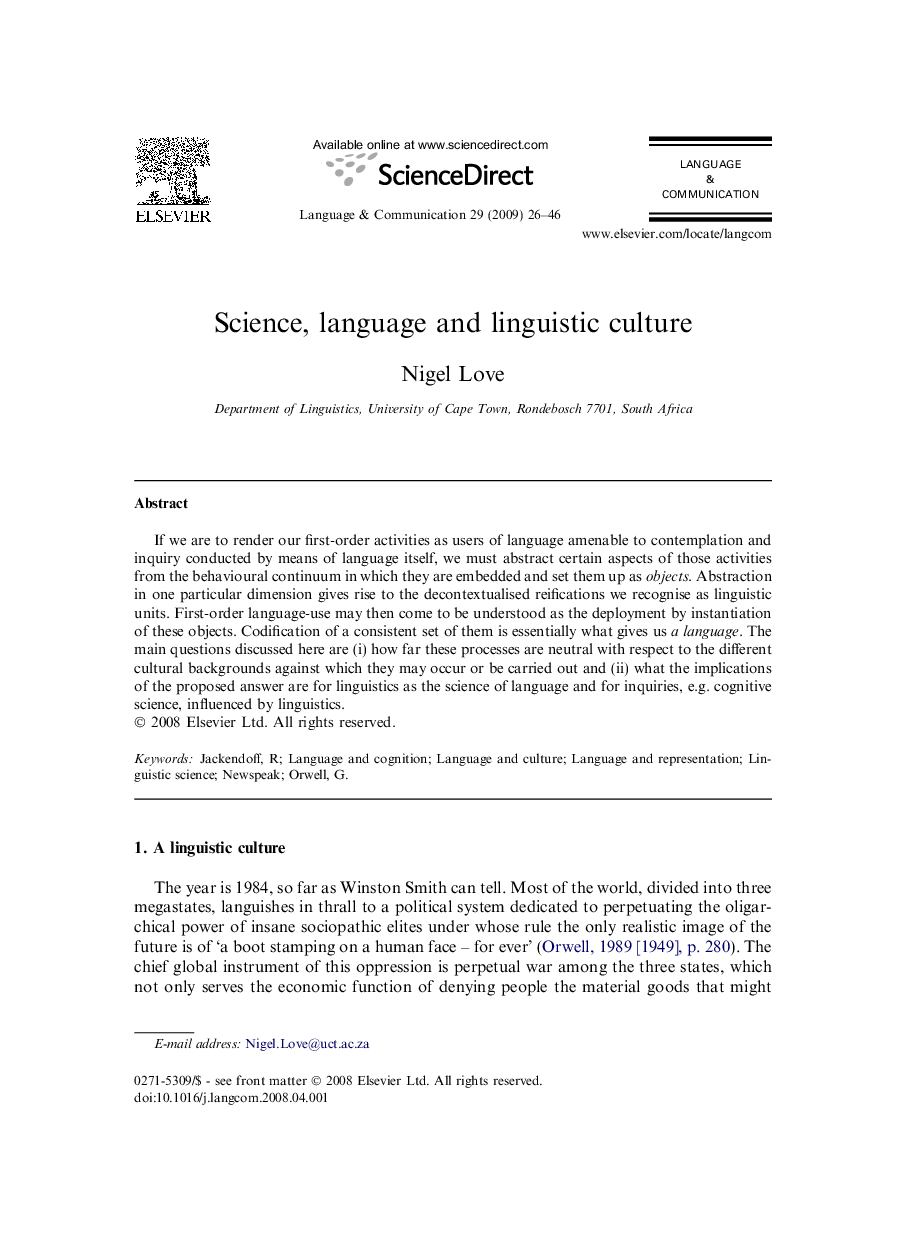| کد مقاله | کد نشریه | سال انتشار | مقاله انگلیسی | نسخه تمام متن |
|---|---|---|---|---|
| 934953 | 923725 | 2009 | 21 صفحه PDF | دانلود رایگان |

If we are to render our first-order activities as users of language amenable to contemplation and inquiry conducted by means of language itself, we must abstract certain aspects of those activities from the behavioural continuum in which they are embedded and set them up as objects. Abstraction in one particular dimension gives rise to the decontextualised reifications we recognise as linguistic units. First-order language-use may then come to be understood as the deployment by instantiation of these objects. Codification of a consistent set of them is essentially what gives us a language. The main questions discussed here are (i) how far these processes are neutral with respect to the different cultural backgrounds against which they may occur or be carried out and (ii) what the implications of the proposed answer are for linguistics as the science of language and for inquiries, e.g. cognitive science, influenced by linguistics.
Journal: Language & Communication - Volume 29, Issue 1, January 2009, Pages 26–46